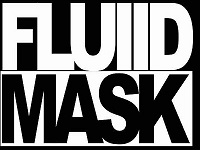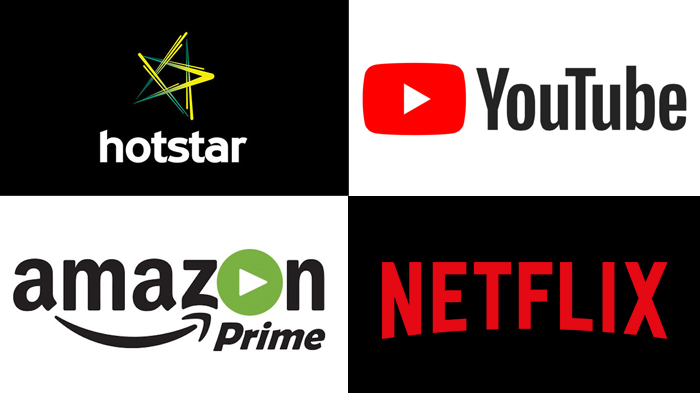Fluiidmask recently came off the back of a very busy schedule, dishing out a ton of VFX shots for major Bollywood features over the last couple of months and they are already sprinkling their VFX magic into new projects including OTT platform features. Having bagged good projects under its name, Fluiidmask is progressively emerging as one of the most favoured post-production service providers in the visual effects sphere of filmmaking.

Animation Xpress caught up with Fluiidmask’s sr. VFX supervisor Prashant Thakur over a cuppa to know more about the movies they are currently working on and discuss the way VFX work has upgraded over the years.
Excerpts:
Tell us about the projects that are in the pipeline.
Currently, we are working on Dharma Productions’ Drive
Another project which is going to be aired on Netflix and produced Bandra West productions is Upstarts.
Could you talk about how the project came to you?
This was a part of the three-films contract we have with Dharma which included Kesari, Kalank and Drive…This was a major complex film with a lot of action involved in it. We were into the film since the initial days. Right from previz-ing and storyboarding. There are a couple of action-sequences and car-chase sequences in the film with some high-end supercars. They were a little complex. Things had to be designed. One has to be careful with the supercars if we are using them. So there was a lot of previz involved especially for the climax chase of the film. There is one more sequence which is a night sequence between two Rangerovers and one Aston Martins.
So that sounds a visually alluring movie to watch out for…
Absolutely, the cars that have been used are Ferraris, Aston Martins, Lamborghinis and Porche. Sushant Singh and Jaqueline Fernandes are starring in the movie. This movie was the first movie that we would have worked on but due to the complexity of shots, this became the third after Kesari and Kalank.
What sort of previsualization did you do?
We basically do the storyboarding before. Director runs us through the sequences that he needs us to storyboard like what goes through his head and the creative art director from our side who supervises the storyboard along with me. We come up with the storyboard. We then present it to the director if the storyboard is good enough and working in synergy with his vision. Director gives us a go-ahead to work on the previs. Previs is basically created on software. Suppose, it’s a Car-film and we need dummy cars so its all done in Maya and animators are heavily involved in creating the previz. Then the director sits with us to create some dynamic angles, drone shots, dynamic movements to the shots, some drone shots. Then we go and shoot on locations. If we are able to get those things, well and good. We plan to mostly get everything.
Any VFX-technology that intrigues or fascinates you?
Motion-capture for sure. So one thing that we are lagging behind in is the motion-capture technology which we often see in major International features like Mowgli and Planet of the Apes. Until now, hardly anyone in India has an idea about how we can go about using it. Obviously, producers over here are a little reluctant to use it. So if anyone comes up with this thing and it is used, then people will feel confident about it.
What are your thoughts on the recent VFX-heavy movie The Lion King?
Its a benchmark in itself. The techniques are just out of the world. I thoroughly enjoyed watching it and also wondered as to what sort of approach they have taken to create such spectacular visuals.
There are great things happening in Indian TV shows and OTT platform specials. Substantial use of VFX to be seen lately. What has been your experience with Netflix?
Yes, We are working on a Netflix feature called Upstart, Although it doesn’t have major visual effects, just basic stuff but yeah they have their own QC standards and protocols that need to be followed when it comes to the overall functioning and production and VFX shots.
Why do you think we don’t see the same QC standards and perfection in Indian television shows?
I think its more about demand. Those shows have amassed quite a following in India and those fans enjoy watching what they are served. They don’t bother. They don’t expect a high standard of visual effects. I haven’t been following Indian television that much. I must say the shows on OTT platforms operate on a completely different set of standards for instance; we worked for an Amazon Prime special called Inside Edge. The quality checks that were followed for that project were just like the ones followed for movies. And they give us the required amount of time that we need.

Are OTT platforms big on shelling out budgets too?
See the part of the project also depends on the production house who is doing the outsourced work by the OTT giants. So it’s not like Netflix is directly dealing with us. It’s always the production house in between who is making the show. Until now, Netflix hasn’t attempted anything big in VFX except for Leila in India. So maybe in the future, they might allocate bigger budgets when sci-fi shows are shot in India.
Did you get to go to the locations when they were shooting Drive?
Of course, it’s a VFX-heavy movie so we were there for the entire hundred days of the shoot.
Did you have creative conflicts with the director (Tarun Mansukhani) sometimes?
Healthy ones for sure. They keep on going till now. (laughs) I think when we do it and show it, he understands our point of view. He is an excellent director and he has a really good vision about what he wants. He has been very supportive. Its all in the service of the end-product.
Lastly, how many shots were delivered?
Two Thousand plus.
Fluiidmask has done some groundbreaking work over the past number of years and they have no plans of resting on their laurels. We would certainly like to see how their projects pan out on celluloid. We will keep you updated on further development.
